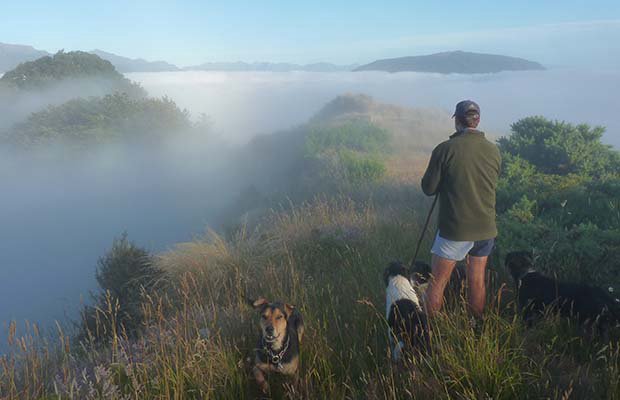The effectiveness of rural leadership has faced intense scrutiny in recent years as sector chiefs tread a fine line between activism and blunting the sharpest edges of government policy.
Leaders say they have tried to work constructively with a government that has a Parliamentary majority, but it has been challenging – and in the past two weeks the gloves have come off.
There has been a noticeable increase in defiance in the pointed language used by farming leaders, angry at the government’s response to their He Waka Eke Noa (HWEN) proposal.
Industry observers have told Farmers Weekly that the sector is well served by its rural leaders. It is the environment in which they operate that is the issue.
Those leaders who have taken a co-operative stance with the government have sometimes done so at the expense of their relationship with members and levy-payers who feel primary sector leaders have been too placating.
This has led to rise of splinter groups such as Groundswell, which attracts a large following of rural people prepared to take their anger and frustration onto the streets.
Federated Farmers president Andrew Hoggard says leaders have been dealing with a government that appears to be trying to catch up with a legislative programme that was stymied in its first Parliamentary term by its coalition partner NZ First.
“It sucks up time and is incredibly frustrating trying to get changes at the same time as farmers are wanting to take pitchforks into the street,” he says.
The government’s response to HWEN shows they are not being listened to, he says.
“The fact they came back with a document that says one in five sheep and beef farming families will be required to move off their land, that they are effectively happy with that, is just crazy.”
Hoggard says HWEN leaders are now shifting the message, telling New Zealanders that the government is content to see 20% of sheep and beef farmers leave their land.
Two years ago, Hoggard says, interaction with the government was more diplomatic as rural leaders contributed to solutions and also had the ear of coalition partners, but that has now changed and the government does what it wants.
The toll on farming leaders was illustrated earlier this year when three of the federation’s seven-member board retired citing the workload of dealing with government policy.
They said they were buckling under the rushed and poorly timed process of implementing complex and far-reaching legislation such as that affecting freshwater.
Now the government has set aside just six weeks leading up to Christmas for consultation on its response to HWEN.
Beef +Lamb NZ chair Andrew Morrison says leadership is about empowering or enabling the performance of those you work with or represent.
While accepting some people will be angry with outcomes, Morrison says solutions have to be found.
“We need to address these problems, not kick the can down the road because they are not going away.”
He says leaders are forceful when lobbying the government.
“There is a difference from drawing a sword and a public letting of blood.
“We are working responsibly yet forcefully. Respect and understanding from both sides is very important with these debates.”
Morrison says the HWEN model has successfully united 11 primary sector groups and could be used for other issues such as nutrients and freshwater.
“I think this is a real maturity for the agriculture sector as it does not pit sector against sector.
“It was highlighted when DairyNZ chairman Jim van der Poel said the government’s response to HWEN will not work because it does not meet the needs of sheep and beef farmers.”
Hamish Gow, the Sir Graeme Harrison Professorial Chair in Global Value Chains and Trade at Lincoln University, says the HWEN debate does not reflect a lack of leadership, but an adversarial decision-making process.
“There is not a lack of leadership, we have good leaders. What we don’t have is a space to deal with complex challenges and challenging conversations.”
He is advocating a system used in the United States and Europe where facilitators bring together society, agriculture, industry and the government along with relevant knowledge and research to freely discuss and debate issues and potential solutions.
The system has “someone in the middle who translates in an unbiased way and facilitates frank and open discussion”.
Such a conversation is missing in the government’s decision to be the first in the world to tax methane emissions, making NZ a first mover when, he says, a safer option would be being a fast follower.
“We are dealing with the economic wealth of NZ. We need to sit down, take a breath and ask what is our strategy … The cost of getting it wrong is so high that this is where we need a facilitator asking what is the economic cost to society if we get it wrong or the cost if we are a fast mover and what is the difference?
“Those are the conversations we are not having.”






